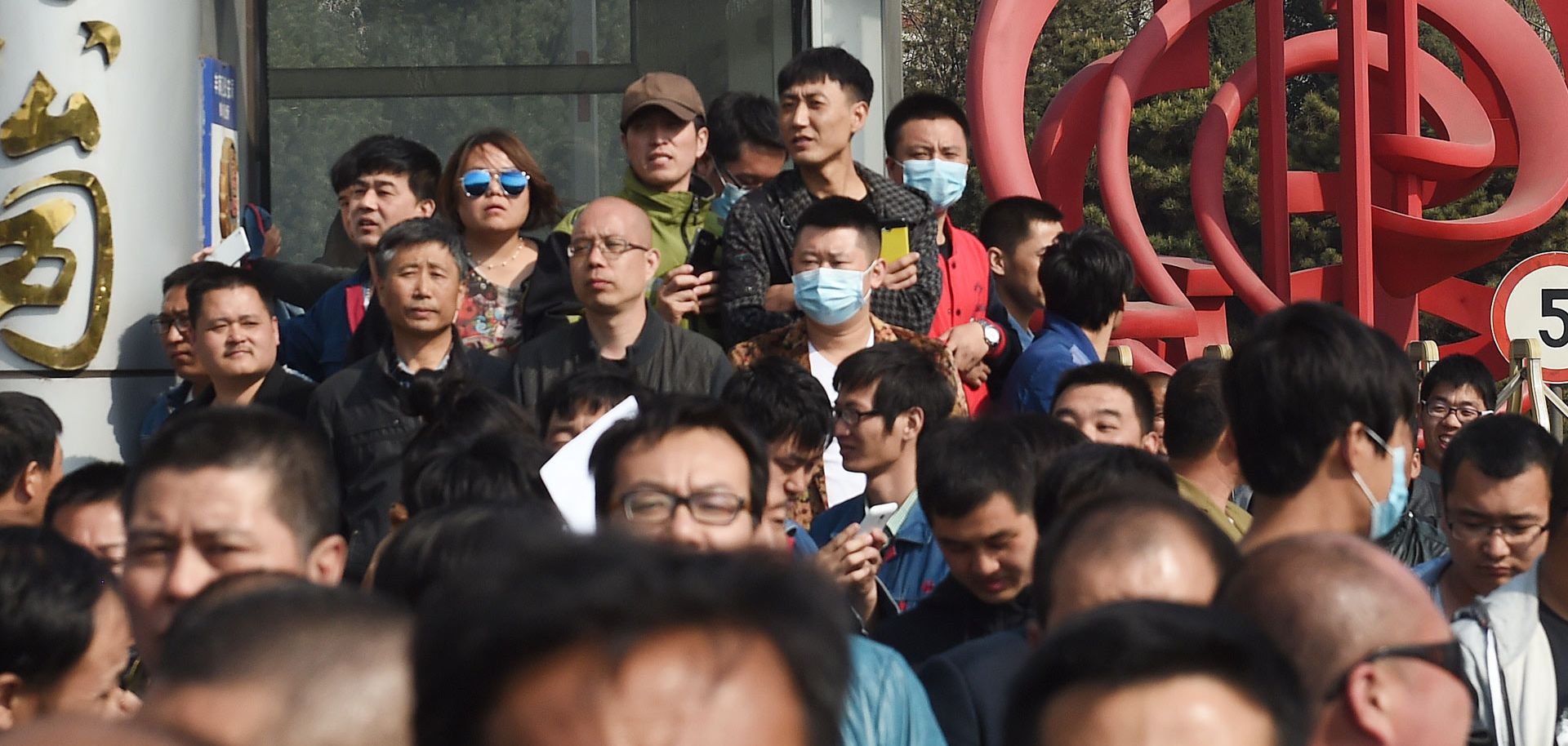ASSESSMENTS
In China, Anti-Corruption Gets Provincial
Apr 21, 2016 | 09:15 GMT

(GREG BAKER/AFP/Getty Images)
Summary
Chinese President Xi Jinping's extensive anti-corruption campaign claimed another victim, but this case may be about more than fraud or abuses of power. Zhang Yue, the head of Hebei province's Political and Legal Affairs Commission, came under investigation for corruption April 16. The Communist Party's top anti-corruption organization, the Central Commission for Discipline Inspection, did not elaborate on the charges against Zhang, but Chinese news outlets reported that he was linked with the former vice minister of the country's intelligence service who was arrested last year. Allegedly, Zhang used his position as the head of Hebei's law enforcement and judicial apparatus to arrest and sentence business rivals of his associates.
The circumstances of Zhang's arrest, however, suggest that he may have come under scrutiny because of his and his province's resistance to centrally mandated cuts to industrial production overcapacity. Beijing plans to consolidate and shutter excess heavy industrial plants, many of which are the foundation of local economies. It forecasts that its measures will result in the layoffs of 1.1 million employees in the steel industry alone in the coming years. In total, as many as 6 million workers at state-owned enterprises will lose their jobs. Naturally, the cuts are unpopular among local populations, and their provincial governments will duly resist these edicts if they are not already.
Proceed to sign up
Register NowAlready have an account?
Sign In